The tragedy that 'chemsex' drugs can cause
- Published
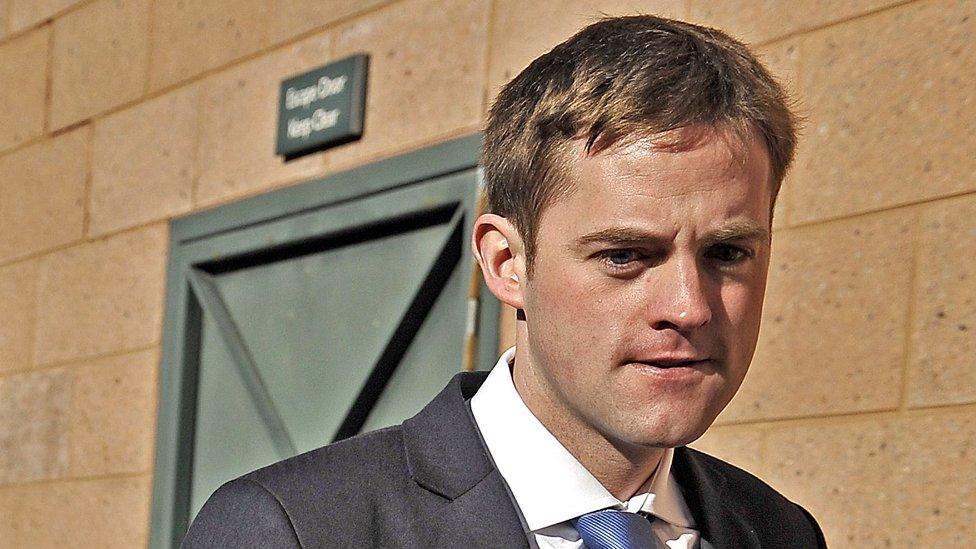
At the beginning of last year, Henry Hendron would have been forgiven for thinking he had it all - a successful career as a barrister, representing high-profile figures and politicians, a flat in the heart of London, and a happy, loving relationship.
But just a few weeks later, it lay in ruins. His 18-year-old boyfriend, Miguel Jimenez, was dead from an overdose. Hendron was arrested and later charged with supplying drugs - his career and his freedom both in jeopardy.
In an interview with BBC Radio 4's Today programme, Hendron has told how his partner's death weighs heavily on his shoulders.
Last week, at the Old Bailey, Hendron pleaded guilty to two charges of possession with intent to supply Class B and Class C drugs. He will be sentenced in early May, with the judge telling him that "all sentencing options remained open". BBC producer Alexander Parkin had earlier admitted two counts of supplying controlled drugs.
Whether or not Hendron is jailed, it almost certainly means the end of a successful career as a barrister.
He says he is not pleading for sympathy or expecting special treatment from the courts. He holds himself entirely responsible for his situation - and the death of his boyfriend.
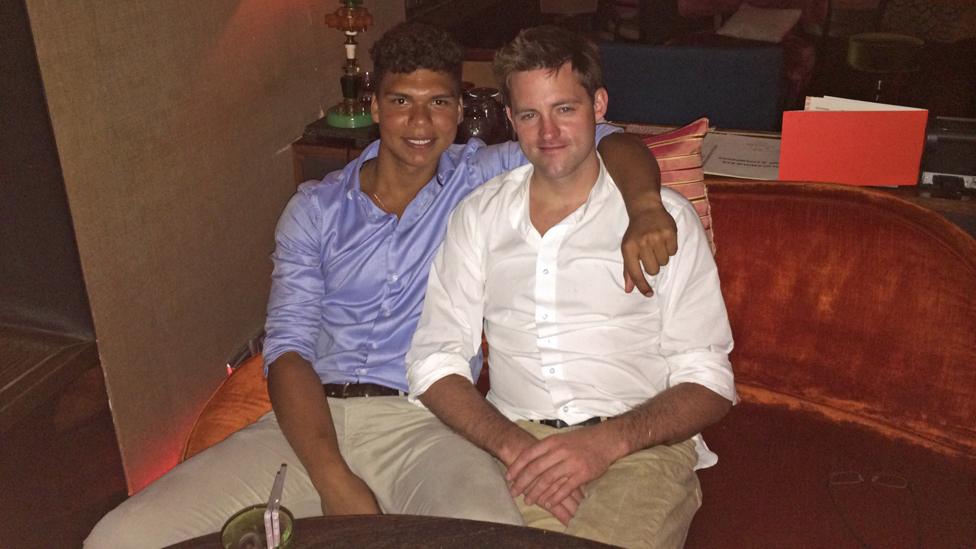
Henry Hendron with his partner Miguel Jimenez
"Every day that goes past I feel responsible. I was older, I should have known better, I was 34 then, he was only 18. It should have been me saying 'we're not going to do this' … I didn't make that call when I should have done, and for that reason, and that reason alone, I put his tragic death on my shoulders."
He believes party drugs are wrecking the lives of many young gay men.
"It was a normal Monday afternoon. We had taken our dog to the vet. We had dinner, we had some wine, and my partner had quite a bit of wine, and then at midnight he just said 'shall we have some drugs?'
"I was working the next day, so I didn't have any on that occasion, but he did. He had some G [GHB]. It was quite a nice experience and we went to sleep. I woke up and he was dead, next to me.
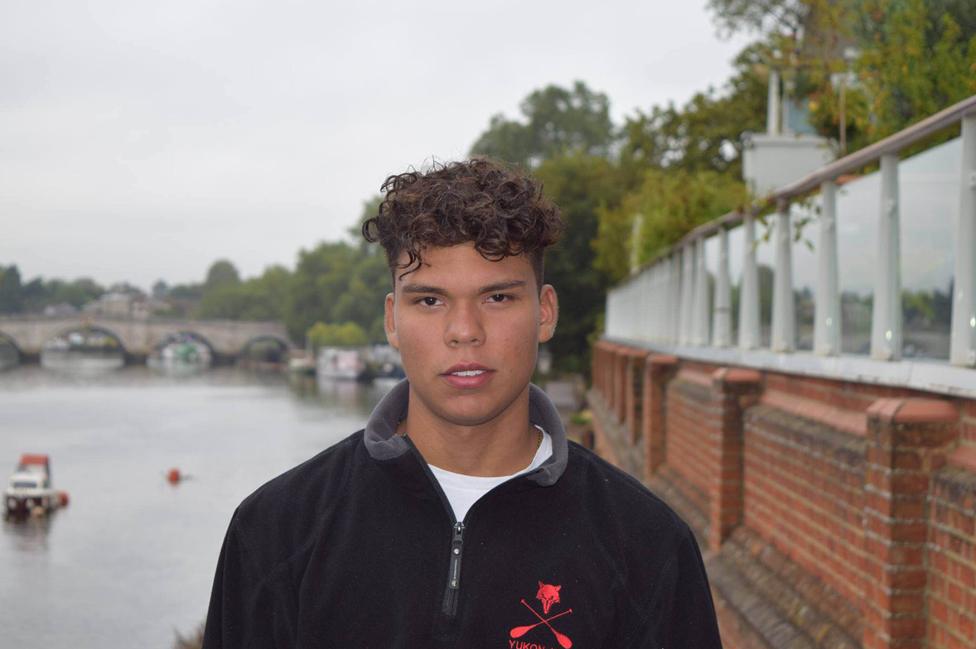
Miguel Jimenez stands beside the Thames
"I'd never seen a dead person before but when I turned him over, he was non-responsive, he was purple in the face and his face was frozen." GHB is much more dangerous when consumed with alcohol.
Hendron says he then attempted CPR to revive Miguel while waiting for the ambulance to arrive at his flat in Temple, in central London.
The paramedics, who arrived alongside officers from the City of London Police, worked for three-quarters of an hour but were unable to save Miguel.
"I think I let out a wail. I was just in another mental, different place. All of a sudden, my whole world had collapsed from being happy and healthy and being in a loving relationship, to one which had this big question mark.
"My partner was dead in the next room, and as the ambulance retreated, four or five police officers came forward and arrested me … for various drugs charges and manslaughter at that time."
It was that moment, handcuffed in his flat in the heart of London's legal district, and being taken away for questioning, that reality dawned.
"I was there because of drugs, my partner was dead because of drugs and I was about to lose my career because of drugs."
Drugs, he says, are "common and increasing phenomenon" on the gay scene. The media reports of the case asserted that Miguel had taken the drugs at a party, but Hendron denies this.

A trio of party drugs: mephedrone, GHB/GBL, and crystal meth
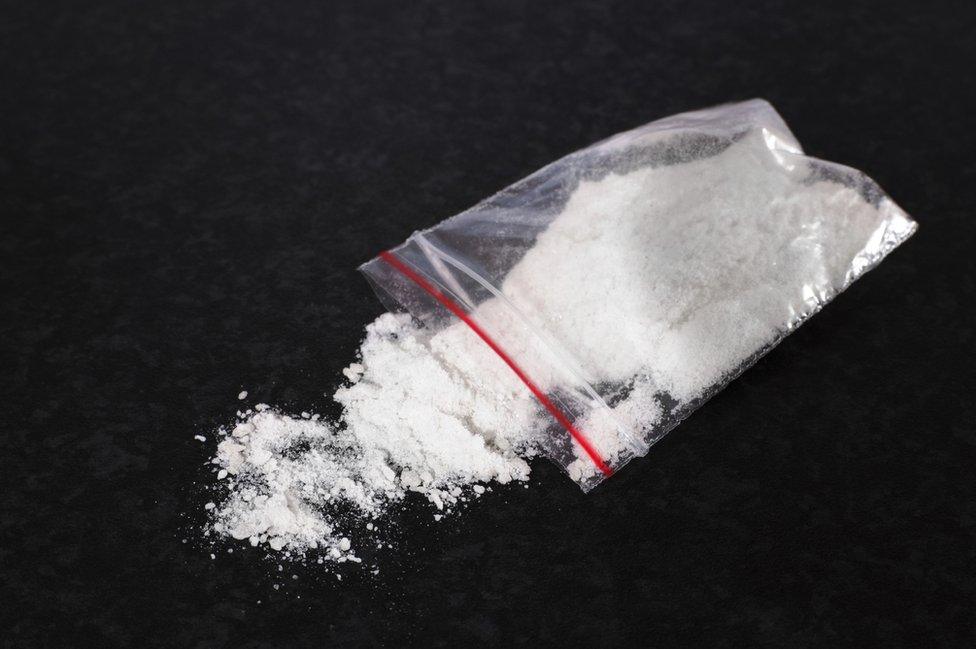
Three illegal drugs have become known to health workers as the "un-holy trinity" of chemsex, as they are frequently used together.
Mephedrone (or "meow meow") is a light-coloured powder that acts as a powerful stimulant, and is closely related to ecstasy and speed. Effects can include euphoria and alertness but also paranoia, anxiety and vertigo. Risks include severe overheating and death.
Crystal meth is part of the amphetamine family and is known for reducing inhibition. In cases of overdose - stroke, and lung, kidney and gastrointestinal damage can develop, and coma and death can occur. Long-term use can damage the brain.
GHB (gammahydroxybutrate) and GBL (gammabutyrolactone) are usually sold as clear liquids. They have a sedative effect which can last up to seven hours, and produce feelings of euphoria. Risks include unconsciousness, coma and death. The substances are much more dangerous when consumed with alcohol.
Mephedrone is a Class B drug. GHB and GBL are both Class C drugs. Crystal meth is Class A.
Source: FRANK

He had bought a large quantity of both mephedrone and GHB (commonly known as G) not for a so-called "chemsex" party but to share with his partner, he says. But the chemsex scene - gay men using drugs like mephedrone and GHB to enhance sex - is one that he had become caught up in over recent years.
"There wasn't a party on the night Miguel died. It was just him and me. But I am familiar with that scene, unfortunately so. I hadn't touched drugs in my teens and twenties, it was only the last couple of years.
"There are a large number of men, in their 30s and 40s, who've come to drugs late and are now doing it regularly. Drugs in the gay scene have really taken off. Recent studies show that gay people are three times more likely to take drugs than their straight counterparts.
"It seems to be the acceptable face now of recreation in the gay community."
In fact, the British Medical Journal published an editorial last year suggesting that chemsex needed to become a public health priority.
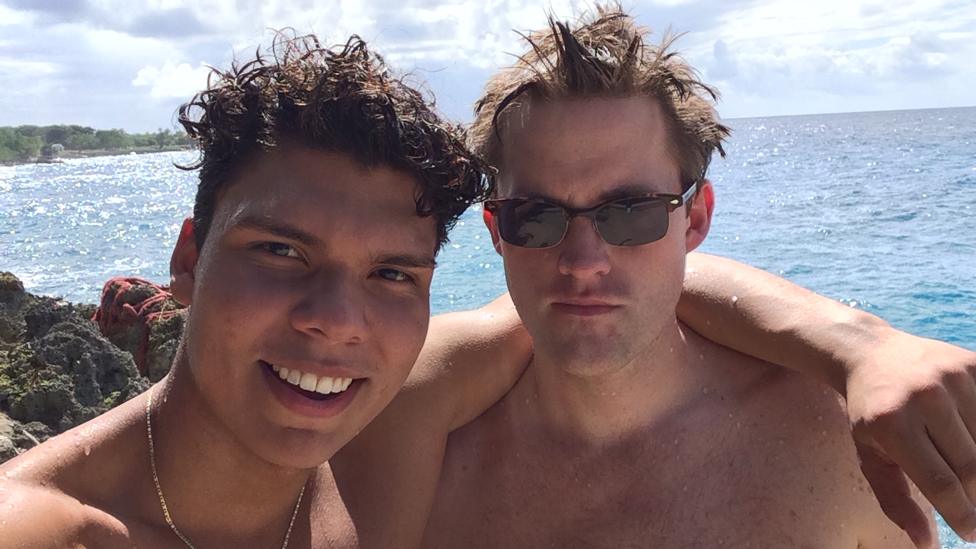
The pioneering sexual health clinic, 56 Dean Street in London, estimates that 3,000 gay men who use drugs in a sexual setting access its services every month.
Who are these people? In Hendron's experience, people very much like him. Professionals, holding down jobs during the week.
"Most of the people who do these gay sex high parties are in full-time employment. It's not a picture that most people aren't part of that scene would recognise.
"The problem is more prevalent than people think and it's an increasing one. It's increasing because the drugs are cheap, and they're everywhere. Within minutes on [gay dating app] Grindr, in Vauxhall or Soho, you can find someone who's selling or looking."
Hendron says he regularly goes to Miguel's native Colombia where he was buried, and has got to know his family, especially his mother. "It's a horrific thing to lose a son, especially at 18 and to drugs. And to make matters worse, not all of his family knew he was gay so you have many bombshells that dropped on their shoulders at the same time."
Hendron accepts he has done wrong.
"I may go to prison and whatever I get, I deserve. I have made some stupid decisions and you have to stand up and accept that.
"But that's the price that drugs make you pay."
Update: In May 2016, Henry Hendron wassentenced to 140 hours of unpaid workafter pleading guilty to two counts of possession with intent to supply.

More from the Magazine
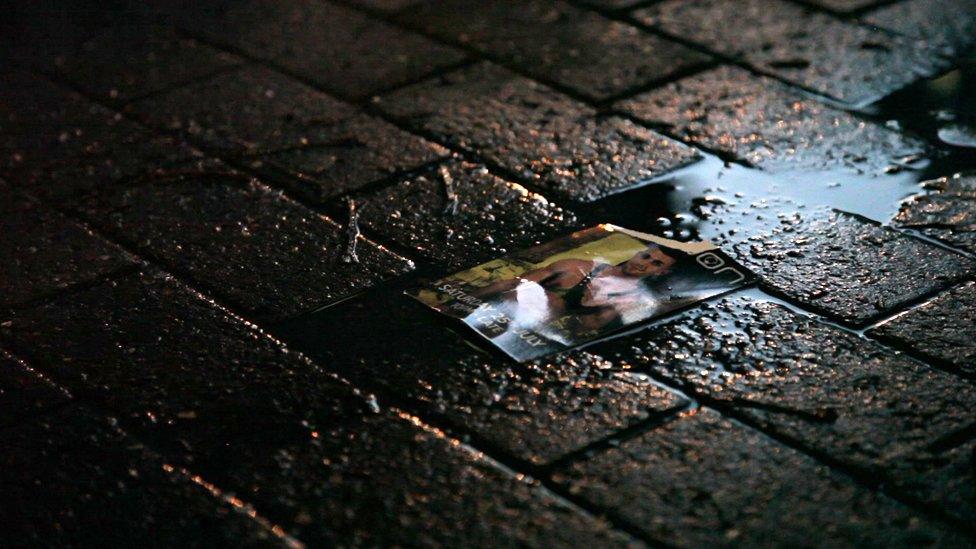
HIV infection rates are on the rise, particularly among gay men. But could a new type of drug treatment - PrEP - be given to people so they avoid catching the disease?
The drugs that protect people who have unprotected sex (July 2015)

Subscribe to the BBC News Magazine's email newsletter to get articles sent to your inbox.